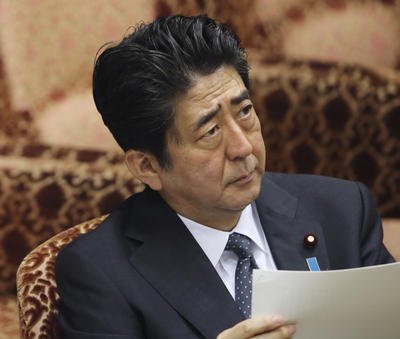The North Korean ‘special investigation committee’ is expected to commence in a few weeks, with the survey projected to conclude sometime this year.
Resolving the abduction issue is one of Abe’s most cherished political goals. More than hollow populism, the issue appears to be one with which Abe is genuinely concerned. He campaigned for Kim Jong-il’s explicit admission of the DPRK’s guilt in the 2002 Pyongyang Declaration as well as the government’s decision not to return the five surviving abductees to North Korea following their initially temporary visit home. His first term as prime minister in 2006–2007 was won largely on the back of his proactive attitude toward the abductions, and throughout his present second term his jacket is almost always adorned with the ‘blue ribbon’ badge symbolising the abductions cause.
Yet, while a comprehensive resolution may be Abe’s ultimate goal, it is difficult to imagine how any finding of North Korea’s reinvestigation committee could constitute a conclusion to the issue.
Much of the public and political furore invested in the issue is bound up in the case of Megumi Yokota, who was abducted in 1977 when she was 13 years old. At the Pyongyang Summit, North Korea admitted that Megumi had been abducted but claimed that she had committed suicide in 1994 following a protracted period of mental illness.
Since the confirmation that she had indeed been taken, Megumi became the symbol for the abductions issue as a whole. The government relies heavily on the tragedy of Megumi’s kidnapping to communicate the heinousness of the abductions; her story is consistently mentioned in speeches and articles relating to the abductions and her name has come to represent the issue as a whole.
This continued invocation of Megumi in connection to the abductions has the effect of reminding the public of both the atrocity of North Korea’s actions and of Japan’s past weakness and humiliation. By highlighting the ineptitude of Japan to secure its borders and protect its own citizens during the Cold War, the present-day government is able to bolster its arguments calling for increased defence capabilities. Abe’s interest in the abductions issue stems from precisely this: to him, the issue represents a violation of Japanese sovereignty and a strong argument for the increased protection of Japan’s borders.
This belief also has links with Japan’s ongoing debate over constitutional interpretation and revision. While speaking at a closed meeting of the Headquarters for the Promotion of Constitutional Revision in early 2013, Abe stated that ‘If we hadn’t had this kind of constitution, we may have been able to protect Megumi Yokota’. He was referring to the ‘kind of constitution’ that did not allow Japan to react militarily to North Korea abducting Japanese citizens, despite at the time possessing tentative knowledge of the incidents.
Another important reason to question whether the abductions issue can ever truly be comprehensively resolved is in the ambiguity of the abductions incidents themselves. Owing to the secretive nature of the abductions program within North Korea and the passage of time since the disappearances, in many cases it is now difficult to determine whether individual cases were indeed abduction, or simply unrelated missing persons incidents.
Suspicions remain that people other than the 17 government-recognised abductees were taken by North Korea — a possibility that the DPRK government has now agreed to examine as part of its reinvestigation. A special arm of Japan’s National Police Agency was established in March 2013 to investigate potential cases of abduction for over 860 people. A separate list maintained by a private citizens’ group, the Investigation Commission on Missing Japanese Probably Related to North Korea, contains several hundred names, with around 70 being ‘strongly suspected’ of being abduction cases.
For these reasons, it is likely that a fully satisfactory conclusion will never be reached for all of the suspected cases of abduction. The fact that Megumi Yokota seems doomed to never return home to Japan means that the abductions issue will in some way remain forever unresolved.
In this way, it is difficult to see how a truly ‘comprehensive resolution’ to the issue can actually be achieved. Still, owing to the fact that he has pledged work towards such a resolution, it will be up to Prime Minister Abe to find a way to convince the Japanese public that — whatever the eventual findings of North Korea’s reinvestigation committee — positive progress has been made, and Tokyo and Pyongyang can begin to move beyond the issue that has paralysed their interactions for the past 12 years.
Owen Lindsay is a PhD candidate at the University of South Australia.

